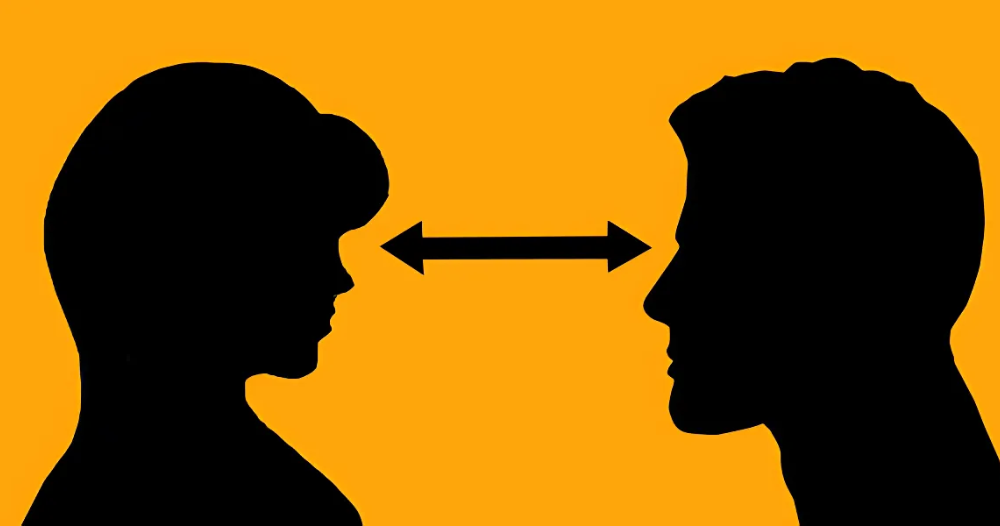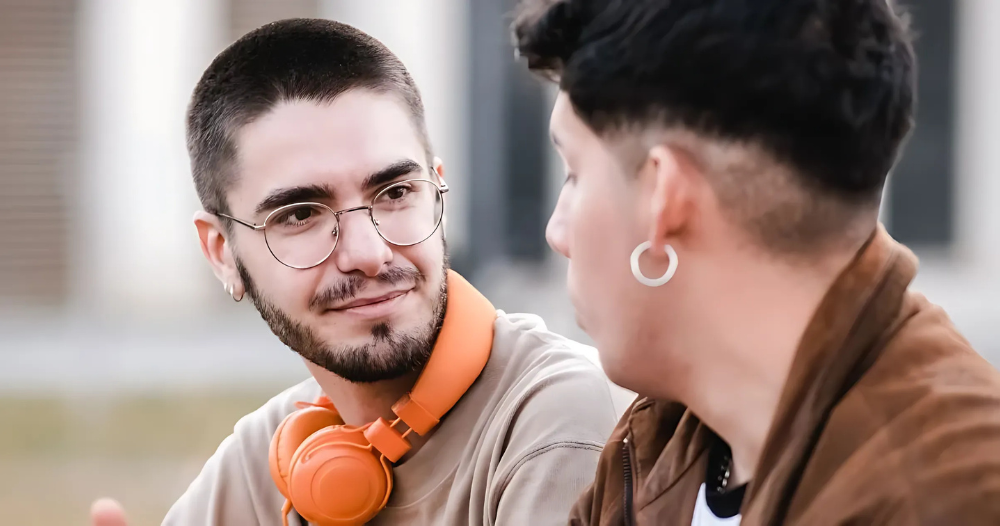Wondering why people avoid eye contact in communication? Discover the hidden meanings, causes, and effects of avoiding eye contact. Learn how this subtle gesture impacts our interactions!
Table of Contents
Introduction
Ever found yourself in a conversation where the person you’re talking to suddenly looks away or seems to avoid eye contact? It might make you feel uneasy, confused, or even wonder if something’s wrong. But here’s the thing—avoiding eye contact in communication isn’t always about evading truth or being dishonest. In fact, this simple act can communicate a lot more than words sometimes.
Eye contact is a powerful tool in communication. It can express trust, sincerity, confidence, or even aggression. So, when people choose to break it, there’s often a deeper reason behind it, whether it’s intentional or not. In this article, we’re going to dive into why people avoid eye contact, what it really means, and how to handle these moments with grace.
So, let’s get into it!
Why Do People Avoid Eye Contact?

It’s one of the most basic forms of human interaction, right? But when someone looks away during a chat, it raises questions. Why would anyone deliberately avoid eye contact? Well, there are several reasons, both psychological and cultural, that could explain this behaviour.
1. Shyness and Social Anxiety
If you’re the quiet type or suffer from social anxiety, avoiding eye contact is an instinctive response. The pressure of making eye contact, especially in large groups or unfamiliar settings, can feel overwhelming. The idea of being stared at can create feelings of vulnerability, and so looking down or away feels like a safer option.
2. Cultural Differences
Not all cultures place the same importance on eye contact. For example, in some cultures, prolonged eye contact can be seen as rude or challenging, while in others, it’s a sign of respect and attentiveness. So, if you’re talking to someone from a different cultural background, their avoidance of eye contact may not mean what you think it does.
3. Guilt or Shame
People often avoid eye contact when they’re feeling guilty or ashamed. Think about it: when you’re caught doing something wrong, it’s common to lower your gaze or look away. It’s like an unspoken admission of guilt—almost as if your eyes are trying to hide the truth.
4. Lack of Confidence
For many, avoiding eye contact is tied to a lack of self-esteem. It’s easier to look at the floor or out the window when you’re not feeling good about yourself. Low self-confidence makes it hard to engage fully in a conversation, and looking someone in the eyes can feel like an impossible challenge.
5. Disinterest or Boredom
On the flip side, sometimes avoiding eye contact simply means that the person isn’t engaged in the conversation. If they’re constantly looking around the room or glancing at their phone, it’s likely they’ve checked out mentally, whether they realise it or not.
What Does Avoiding Eye Contact Really Mean?

Now that we know why people might avoid eye contact, let’s dig into what it could really be communicating. It’s all about interpreting the context, body language, and the relationship between the people involved.
1. Nervousness or Unease
It’s pretty common for people to avert their gaze when they’re nervous. If someone is speaking to you and their eyes keep darting around, it could be a sign that they’re unsure about what to say next or that they feel out of their depth in the conversation.
2. Avoidance of Conflict
In many situations, avoiding eye contact is a tactic for avoiding conflict. When conversations become tense or emotionally charged, looking away might be a way of disengaging from the discomfort, signalling that the person wants to avoid confrontation or is feeling emotionally overwhelmed.
3. Not Trusting You
While it’s not always the case, some people may avoid eye contact because they don’t trust you. This could be in a professional setting, a personal relationship, or even a casual encounter. Trust is built through consistent and open communication, and avoiding eye contact can be a subtle sign that something’s off.
4. Power Dynamics
Ever noticed how some people will lock eyes with you the moment they walk into a room? It’s like a challenge. Conversely, others will avoid eye contact to maintain a sense of control. Not engaging eye-to-eye can give them a feeling of power in the conversation, whether they intend it or not.
How to Handle Avoiding Eye Contact in Conversations

If you’re the one who finds people avoiding eye contact during chats, it can leave you feeling confused or disconnected. But don’t fret! There are ways to navigate these situations with a bit of understanding and sensitivity.
1. Don’t Take It Personally
First off, try not to take it to heart. Just because someone avoids eye contact doesn’t mean they don’t value the conversation. It could be tied to their own insecurities or even cultural norms. It’s not a reflection of you, it’s more about them.
2. Give Them Space
If the person is visibly nervous or anxious, give them a little breathing room. You don’t have to maintain intense eye contact throughout the whole conversation. Allow the other person to find comfort in the exchange and adjust to the rhythm of the dialogue.
3. Use Body Language to Encourage Connection
If you’re trying to encourage someone to engage with you more fully, make sure your body language is open and non-threatening. You can nod, smile, and lean slightly forward to show interest, without making them feel pressured to maintain eye contact.
4. Ask Open-Ended Questions
Sometimes, people avoid eye contact because they’re unsure about how to respond. Help them along by asking open-ended questions that encourage them to elaborate. This can ease the tension and make it easier for them to find their rhythm in the conversation.
Avoiding Eye Contact in Communication: The Psychological Side

On a deeper level, avoiding eye contact can be linked to how we process emotions and how we see ourselves in relation to others. Here are a few psychological factors that play a role:
1. The Fight or Flight Response
In moments of stress or anxiety, your body can trigger a fight-or-flight response. This might cause someone to avoid eye contact because their body is focusing on either escaping the situation or preparing for a potential threat. It’s a subconscious way to protect themselves.
2. Cognitive Load
Believe it or not, maintaining eye contact requires cognitive effort. When people are processing complex thoughts or emotions, it may feel easier to avoid direct eye contact so they can focus on organising their thoughts. It’s like multitasking—your brain’s focus is split, and eye contact falls to the backburner.
3. Fear of Intimacy
In some cases, avoiding eye contact can signal a fear of intimacy. For some people, looking into someone else’s eyes can feel like a deep, personal connection. If they’re not ready for that, they’ll instinctively look away to avoid the emotional closeness that comes with it.
Conclusion
Avoiding eye contact in communication is often much more than a simple act of looking away. Whether it’s a sign of nervousness, insecurity, cultural norms, or a desire to avoid conflict, understanding the reasons behind it can give you a new perspective on your conversations. By reading the room and adjusting your own body language, you can improve your communication and avoid misunderstandings.
The next time you notice someone looking away, take a moment to consider the bigger picture. Eye contact might be the window to the soul, but sometimes, avoiding it is just another way of saying “I’m here, but I need a little space.”
So, what do you think? Does avoiding eye contact in communication make you uncomfortable? Or do you have a different perspective? Let us know in the comments!
Dominance vs Submission: What’s Really Going On?
For Video Content: Checkout Our Youtube Channel
FAQs about Avoiding Eye Contact in Communication
Is it rude to avoid eye contact?
It depends on the situation. In many cultures, avoiding eye contact can seem rude or disengaged. However, for some, it’s a natural response due to anxiety or shyness. If you’re unsure, give the person the benefit of the doubt and try not to read too much into it.
Can avoiding eye contact mean someone is lying?
Not necessarily. While some people may avoid eye contact when they’re lying, it’s not always the case. Other factors like nervousness, guilt, or shyness can also play a role. Always consider the context before jumping to conclusions.
How do I handle a conversation with someone who avoids eye contact?
Stay patient and open-minded. Use body language to show you’re engaged and ask open-ended questions to help the person feel more comfortable. Most importantly, try not to take it personally.
By: Ardansharma



Pingback: How Hunched Shoulders in Communication Speak Louder Than Words - Body Language and Psychology